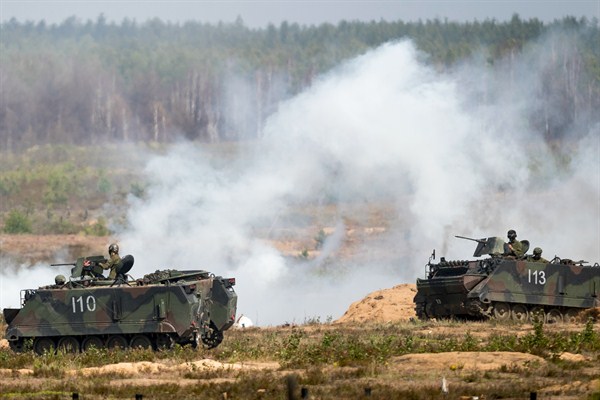A nation must think before it acts.
The tenor of NATO’s summit in Warsaw late last week focused overwhelmingly on deterring Russia’s military adventurism. While it was a positive turn for members of the alliance’s eastern flank, such as Poland and the Baltic states, longstanding NATO aspirants like Georgia are unlikely to see any genuine relief from their extended membership limbo. This is largely a consequence of NATO’s increasingly fraught internal politics, but Tbilisi itself cannot escape some blame.
NATO’s shift from retrenchment and reassurance to deterrence in response to Russian aggression in Eastern Europe was evident in its plans, announced in Warsaw, to deploy four multinational battalions in Poland, Estonia, Lativia and Lithuania on a rotational basis. The deployment represents a kind of watershed moment for the alliance. Previous reassurance measures—such as multinational exercises, beefed-up air policing and joint naval cruises—were certainly launched with Russia in mind, but they were as much a signal of solidarity to vulnerable Eastern European capitals as a symbolic warning to Moscow.
These new NATO battalions in Eastern Europe are different. In a major boon for territorial defense along NATO’s eastern flank, the roughly 4,000 troops in the four NATO battalions, made up of member state troop contributions of varying sizes, will each be led by the United States, the United Kingdom, Germany and Canada. However, while this new deployment represents an undeniable upgrade to NATO’s regional military presence, it obscures a pitched, often heated debate within the alliance over both Russian threat perceptions and the best way to contend with Moscow.
Continue reading, “NATO’s Moves to Deter Russia Won’t End Georgia’s Membership Limbo“




